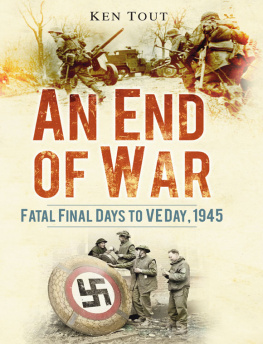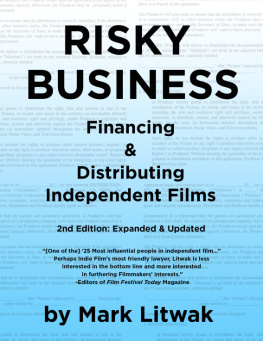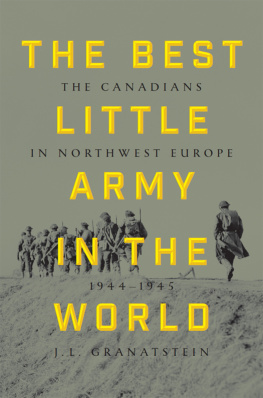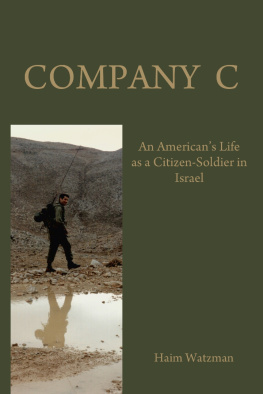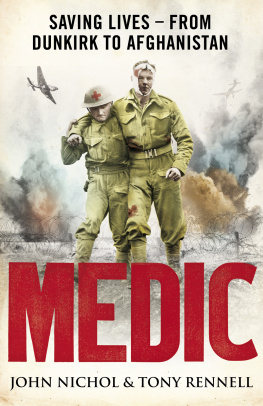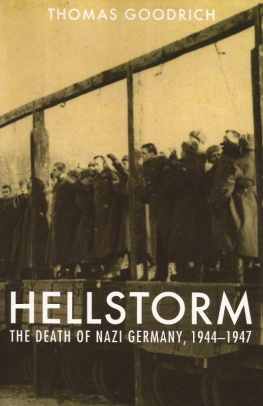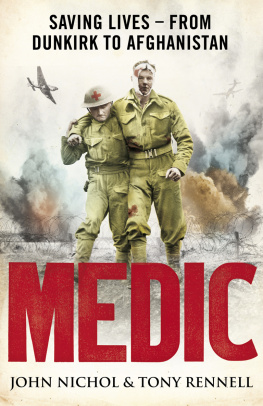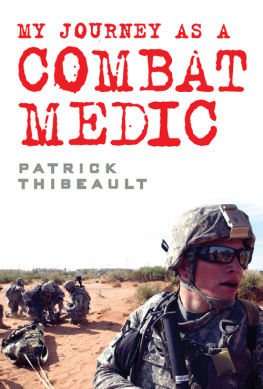ALSO BY LEO LITWAK
To the Hanging Gardens,
a novel
Waiting for the News,
a novel
College Days in Earthquake Country
(with Herbert Wilner)
THE MEDIC
Life and Death in the Last Days of WWII
LEO LITWAK
ALGONQUIN BOOKS OF CHAPEL HILL 2001
Published by
Algonquin Books of Chapel Hill
Post Office Box 2225
Chapel Hill, North Carolina 27515-2225
a division of
Workman Publishing
225 Varick Street
New York, New York 10014
2001 by Leo Litwak. All rights reserved.
Published simultaneously in Canada by Thomas Allen & Son Limited.
Design by Anne Winslow.
Library of Congress Cataloging-in-Publication data is available for a previous edition of this work.
eISBN 9781565128774
DEDICATIONS
To Jessica
To Emma
To Sophia
To Carolyn
ACKNOWLEDGMENTS
My thanks to Herbert Gold for his all-important counsel and close reading; to Charlotte Painter for her detailed critiques; to George and Annie Leonard for their support and fine editing; to Molly Giles for her sly, trenchant criticism; to Bernard Taper for suggesting Algonquin; to Tom Farber for his encouragement; to the men and women of the Saloon who urged me on; to my agent, Ellen Levine, who kept me on the path; to my editor, Duncan Murrell, who read the manuscript as I hoped it would be read and guided me to the finishing touches.
CONTENTS
CHAPTER 1
LEAVING
CHAPTER 2
BAPTISM
CHAPTER 3
BELGIAN WINTER, 1945
CHAPTER 4
ACROSS THE RIVER
CHAPTER 5
LUCCA SAID
CHAPTER 6
PARIS LEAVE, 1945
CHAPTER 7
SONGS OF WAR
CHAPTER 8
DISPLACED IN GROSSDORF
CHAPTER 9
THE FACTORY
CHAPTER 10
THE RUSSIANS
CHAPTER 11
MAY 8
CHAPTER 12
LEAVING GROSSDORF
CHAPTER 13
DISSOLUTION
PROLOGUE
In the last weeks of the war in Europe my company entered a village in Saxony that was decked out in white flags. We found cozy billets in large housesfeather beds, tile ovens in kitchens, cellars stocked with food and drink. Details were assigned, the nights password given, guards posted.
One of the guards outside our platoon billet heard a noise in nearby bushes, maybe ten yards away, spotted a German uniform, yelled something like, Who goes there! and started shooting before there could be an answer. I was the platoon medic and came running when I heard the call for aid. The German lay facedown, his hair, abundant, dirty yellow, was tangled in the bushes. We turned him over. He was a kid, maybe sixteen years old, unarmed and barely alive.
Maybe he didnt understand the challenge. Maybe he didnt have time to respond. The thirty-caliber bullets had scooped out his chest and bared his heart. When I recall the scene I see his beating heart. I dont know how that can be but thats how I remember it. He must have been prone when the bullets hit, just starting to rise, wedged into the bushes. He still had breath to whisper and I put my ear to his lips.
Ich ergebe mich. Warum schiessen sie? I surrender. Why do you shoot?
Wir haben nicht gewsst. We didnt know, I said, and uselessly bandaged him with large compresses and two-inch gauze and tape. The medics from the battalion aid station arrived by jeep and carried him away. The next day when I asked a medic from the aid station what happened to the kid he said it was a hopeless case; why had I bothered to send him back when he had no chance? Id wasted the resources of the aid station and the field hospital.
Toward the end the German army was stocked with kids and old men, and this kid, among the masses of dead, was no one special. Kids were running the war. I wasnt much more than a kid myself. The wound was terrible but Id seen worse. After we packed him off to the aid station I returned to a meal scrounged from a German cellarham and black bread and white wine and cherry preservesand didnt give the dying boy much thought.
Twenty-three years later he unexpectedly showed up. It was 1967. I was at the Esalen Institute, on assignment for the New York Times Magazine. Esalen, on the Big Sur coast of California, bordered a wilderness preserve on one side. On the other side were steep cliffs and the Pacific Ocean. Between wilderness and ocean there were plush meadows and a lodge and cabins and hot mineral baths.
According to its brochure, Esalen was engaged in a radical exploration of human potentiality. It was just beginning to receive media attention as a major source of the mind-blowing, erotic culture of the sixties. The Esalen authorites feared the media would be biased against them, on the hunt for sensational stories about the baths and drugs and nudity and sex. I was urged, as a matter of fairness, to actively participate in program offerings, rather than to stay on the sidelines and observe. That seemed reasonable and I joined, with some misgivings, a five-day encounter workshop that offered body movements, sensory awareness, fantasy experiments, psychodrama.
I had enrolled in a particularly aggressive group and from the beginning felt exposed and vulnerable. I decided on irony as the strategy for handling the new experience. The intense, intimate connection to strangers made the workshop seem to last for weeks, and toward the end, irony went out the window and I felt close to blowing up. The group leader saw that I was strung tight. He asked if I would be willing to take a fantasy trip. Where did he want to take me?
Into your body to examine the stress youre under.
I said okay and at his instruction lay on the floor of the workshop room and closed my eyes. He asked me to imagine entering my body.
I imagined an enormous statue of myself, lying prone in a desert. I imagined my tiny self climbing into my open mouth and down my gullet and into my chest. I became absorbed by the effort and lost sense of the room and the group and heard only the leaders voice.
He asked, Where are you?
In my chest.
What do you see?
Its empty. Theres nothing here.
Wheres your heart?
Theres no heart here.
He asked if I could bring a heart into my body and suddenly there it was, a pulsing heart sheathed in slimy membrane, the heart Id imagined seeing twenty-three years before in the open chest of a dying German boy, and I broke down, wailing for a kid I thought I had long ago put out of mind. Other memories of war came up, equally vivid. The war, which had long been out of mind, was not yet finished.
The war years were perhaps the most dramatic of my life, responsible for habits of mind that shaped my generation. It is hard to distinguish events as they were and as they have become in memory. And yet when I recall the smell of a cup of hot coffee on an icy morning in Belgium more than fifty years ago it seems more real than the cup of tea I drank this morning.
The Medic is based on my experience as a combat medic. It takes its shape from a memoir published in the New York Times Magazine in May 1995. I have modified and dramatized the memoir, merging impressionssome vague, many vividof wartime encounters. I have invented names so that no one I served with would be confused by the composites of people, places, and units. The First Platoon, A Company, is itself a composite of units in which I served. The town I have called Grossdorf has a wartime model in Saxony but its geography has been altered to conform to my imagination since my memory here is vague. However, the city of Chemnitz will still be on the horizon. There will no longer be a camp containing Russian women slave laborers, but that camp was once there, as was the camp of Hungarian Jewish women outside Kassel, Germany.



